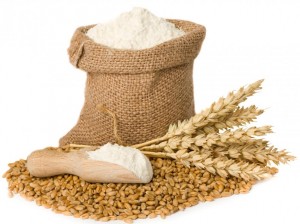 In an age before supermarkets and seed catalogs the harvest season could be an anxious time of year. The quantity and quality of the harvest often determined the fate not only of individuals, but also of entire communities. A succession of failed harvests brought famine and death while good harvests provided adequate food to sustain the community over the winter and quality seed for planting the following Spring’s crop. Jesus’ hearers would have been acutely aware of all this as they listened to his parable.
In an age before supermarkets and seed catalogs the harvest season could be an anxious time of year. The quantity and quality of the harvest often determined the fate not only of individuals, but also of entire communities. A succession of failed harvests brought famine and death while good harvests provided adequate food to sustain the community over the winter and quality seed for planting the following Spring’s crop. Jesus’ hearers would have been acutely aware of all this as they listened to his parable.
“The kingdom of heaven may be compared to someone who sowed good seed in his field; but while everybody was asleep, an enemy came and sowed weeds among the wheat, and then went away. So the plants came up and bore grain, then the weeds appeared as well. And the slaves of the householder came and said to him, “Master, did you not sow good seed in your field? Where, then, did these weeds come from?’ He answered, “An enemy has done this.’ The slaves said to him, “Then do you want us to go and gather them?’ But he replied, “No; for in gathering the weeds you would uproot the wheat along with them. Let both of them grow together until the harvest; and at harvest time I will tell the reapers, Collect the weeds first and bind them in bundles to be burned, but gather the wheat into my barn.” (Matthew 13: 26-30)
The weeds in question are most probably darnel – a toxic plant which resembles wheat. Mixing darnel in with the wheat crop was an act of indiscriminate agricultural terrorism. Having toxins mixed in one’s flour was bad enough. Having toxic seed mixed with good seed for next season’s sowing was a disaster in the making for the whole community. Sensible farmers purified both land and crop with fire whenever they detected darnel.
Jesus’ parable suggests that God cares for the Kingdom of Heaven in much the same way that a farmer cares for his crops and fields. That which is unholy and evil cannot be permitted to destroy that which is righteous, holy, and good. For imperfect sinners such as ourselves the good news is that God will not render judgment until the harvest is gathered in. There is still time for each person living to choose whether to cultivate weeds or wheat in his or her life. We cannot earn salvation, yet our life choices do matter. In part, we each self-select a destiny as chaff for the fire or wheat for the barn.
“and all were judged according to what they had done. … and anyone whose name was not found written in the book of life was thrown into the lake of fire.” (Revelation 20:13-15)
Happy Thanksgiving,
Pastor Derek
